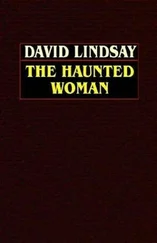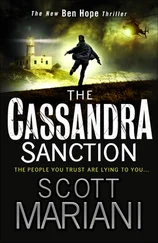Manifestly the new order was resolved to “incorporate” (hateful word!), if it could, all these would-be privileged, would-be irresponsible people. Its face was hard towards them. Its hygienic and educational activities threatened an increasing regulation of their lives. It proposed to rob them of the natural excitements and adventure of gambling and speculation; to deprive them of the legitimate advantages of their foresight and business flair. It threatened them with service; service and ever more service — a rôle, they insisted, that would be unendurably “monotonous”. They wanted to be good sometimes and bad sometimes and jump from this to that. A “soulless uniformity” became the bugbear of these recalcitrant minds.
The workers often resented Modern State methods almost as much as their immediate employers. Men have always been difficult to educate and reluctant to submit themselves to discipline, and there was a curious suggestion of the schoolmaster about these fellows of the Modern State nuclei. Dislike of what was at hand helped to conjure up fears of what might lie beyond. Once freedom of business had gone, what rules and regulations might not presently enmesh the wilful individual under the thumb of this one world employer? For instance, the Modern State centres were talking of a control of population; it was easy to see in that a hideous invasion of the most private moments in life. Weights and measures and money to-day, and wives and parentage tomorrow!
These widely diffused repugnances, fears and antagonisms were enhanced by the difficulties put in the way of aspirants to the Modern State Fellowship and to positions of responsibility in the service of the Controls. Jobs were not for everyone. Rejected candidates to the Fellowship were among the most energetic of Modern State antagonists. By 1970, all over the world, wherever the remains of the old prosperous and educated classes of “independent” and business people were to be found, appeared associations to combat the activities of the Modern State nuclei. There were Liberty Clubs and Free Trade Associations; there were Leagues of Citizens, Trade Protection Chambers and “Return to Legality” societies. There were organized religious and patriotic revivals. The Modern State schools were discovered to be immoral, unpatriotic and anti-religious. It was extraordinary how the money-changers hurried to the deserted temples and clamoured for the return of Christ.
Every town and city found someone or other — as often as not it was some elderly lawyer or politician from the old days — keen to revive and protect its privileges. The world heard once more of the rights of peoples and nations to be free and sovereign within their borders. A hundred different flags fluttered more abundantly every day about the reviving earth in the sacred name of freedom. Even men who were engaged in organizing debt-serf cultivation and debt-serf industrialism in the American cotton districts, in the old rubber plantations and in the factories of India, China and South Italy, appeared as generous supporters of and subscribers to the sacred cause of individual liberty.
The behaviour of the inferior masses showed a wide divergence of reactions. The widespread communist propaganda of the War Years and the Famished Fifties had intensified their natural hostility to the profit-seeking bourgeoisie, and there was little chance of their making common cause with them; but the Modern State Society, with the lessons of Russia before it, had no disposition to exacerbate the class war for its own ends. It knew quite clearly that to appeal to the mere insurrectionary impulse of the downtrodden was to invite the specialist demagogue, sustained by his gang and his heelers, his spies and secret police, to take the chair in the council chamber.
De Windt had driven that point well home. “Creative revolution cannot cooperate with insurrectionary revolution.” There was to be no flattery of ignorance and inferiority as though they were the keys to an instinctive wisdom; no incitement to envy and jealousy against knowledge and ability. The Modern State meant to abolish toil, and that meant to abolish any toiling class, proletariat, labour mass, serf or slave, whatever it was called, but it had no intention of flattering and using the oafish mental as well as physical limitations it meant to liberate from existence altogether. It took the risk that the forces of reaction would organize strikes and mass resistance against its regulations, its economies of employment, its mechanization, its movements of population and the like, among the other inevitable difficulties of its task.
So the world-stage was set for the triangular drama of the late Twentieth and early Twenty-first Centuries, in which reaction in a thousand forms, and Modern State organization in one, struggled against each other to subjugate or assimilate the more or less passive majority of mankind.
We write in outline, and necessarily in an elementary history it is only the primary lines that can be given. But just as when we enlarge our scale of observation, the broad divisions of a map vanish and countries and divisions become hills, valleys, buildings, forests, roads, and at last, when we come to earth, stones, pebbles, blades of grass and flowers, so this rough division of humanity into three intermingled and intensely interacting multitudes was in reality qualified by a thousand million individual complications.
On the whole the content of people’s minds was far more intricate then than it is now. That is a principle the student of history must never forget. The intellectual progress of mankind had been a continual disentanglement and simplification leading to increased grasp and power. These closing decades of the Age of Frustration were still, in comparison with our own time, a time of uncertainties, inaccuracies, mixed motives, irrational surprises and bitter late realizations. There was scarcely an unskilled toiler in the world who was really no more than a passive clod in the hands of his exploiters and employers. There was scarcely a reactionary who did not in some fashion want tidiness and efficiency. And, conversely, there was hardly a Fellow of the Modern State organization, man or woman, who had not spasms of acute self-seeking and vanity, who could not be doctrinaire, intolerant and vindictive on occasion, who could not be touched by the sentimental and æsthetic values of the old order, and who did not like, love and react to scores of people incurably shaped to the opposition pattern.
The New Fiction of the Eighties and Nineties is enormously preoccupied with this universal battle of ideas and mental habits in people’s minds. The simpler novels of the earlier past and the novels of the present day tell of individual character in a set battle between good and bad in a world of undisputed standards; but the novels of those years of social conflict tell of a wild confusion between two sorts of good and two sorts of bad and of innate character distorted in a thousand ways. It was a difficult age. Life still has its endless ironies and ambiguities, but they are as nothing to those amidst which the men of 1970 had to steer their courses.
8. The Second Conference at Basra, 1978
Table of Contents
The second Conference at Basra, though many of its prominent figures had already played leading rôles in the earlier gathering in 1965, was very different in scale, scope and spirit from that assembly. It was an older gathering. The average age, says Amen Rihani, was a full ten years higher. Young men were still coming into the Fellowship abundantly, but there had also been accessions — and not always very helpful accessions — of older men who had been radical and revolutionary leaders in the war period. Their frame of experience had shaped them for irresponsible resistance. Their mental disposition was often obstructively critical and insubordinate. Many had had no sort of technical experience. They were disposed to throw an anarchistic flavour over schools and propaganda.
Читать дальше











